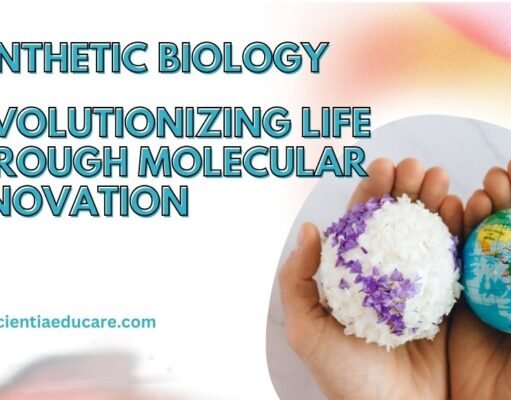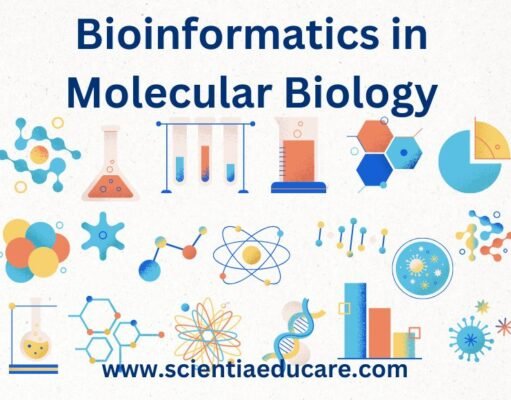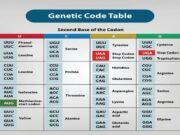Questions with Answers on “Regulation of Gene Expression in Prokaryotes and Eukaryotes”
1. What is gene expression, and why is its regulation important in living organisms?
Answer:Gene expression refers to the process by which information encoded in...
MCQs on “Regulation of Gene Expression in Prokaryotes and Eukaryotes”
What is the primary level of gene expression regulation in prokaryotes?A. Transcriptional levelB. Translational levelC. Post-transcriptional levelD. Epigenetic levelAnswer: A. Transcriptional level
Which of the...
The Genetic Code: Exploring Universal and Degenerate Features
Introduction
The genetic code is a set of rules that defines how the sequence of nucleotides in mRNA is translated into a sequence of amino...
Questions with Answers on “Genetic Code: Universal and Degenerate Features”
1. What is the genetic code, and why is it essential for protein synthesis?
Answer:The genetic code is the set of rules by which the...
MCQs with Answers on “Genetic Code: Universal and Degenerate Features”
1. What does the term "genetic code" refer to?
a) The arrangement of genes in DNAb) The set of rules by which nucleotide sequences are...
Protein Synthesis: From Amino Acids to Proteins
Introduction
Protein synthesis is a fundamental biological process in which genetic information encoded in DNA is translated into functional proteins. Proteins are the building blocks...
Questions and Answers on “Protein Synthesis: From Amino Acids to Proteins”
1. Explain the central dogma of molecular biology.
Answer:The central dogma of molecular biology describes the flow of genetic information within a biological system. It...
MCQs on “Protein Synthesis: From Amino Acids to Proteins”
Which of the following is the process of synthesizing a protein from mRNA?
a) Transcription
b) Replication
c) Translation
d) Transduction
Answer: c) Translation
Which molecule carries amino...
Mutations: Types and Genetic Implications
Introduction
Mutations are fundamental changes in the genetic material (DNA or RNA) of an organism. They can occur in both somatic and germ cells and...
Questions with answers on “Mutations: Types and Genetic Implications”
1. What is a mutation? Discuss the various causes of mutations.
Answer: A mutation is a permanent change in the DNA sequence that makes up...
MCQs with answers on “Mutations: Types and Genetic Implications”
1. What is a mutation?
a) A change in the DNA sequenceb) A type of cell divisionc) A normal cellular functiond) A form of genetic...
Understanding Transcription and Translation: The Language of Life Simplified
Introduction
The processes of transcription and translation are fundamental to life as they convert the information encoded in DNA into proteins, which perform virtually every...
Questions with answers on the topic “Transcription and Translation Processes Simplified”
1. What is transcription, and how does it occur in prokaryotic and eukaryotic cells?
Answer:Transcription is the process by which an RNA molecule is synthesized...
MCQs with answers on the topic “Transcription and Translation Processes Simplified”
1. What is the first step of transcription?
a) RNA processingb) RNA polymerase binding to the promoterc) Elongation of the RNA strandd) Termination of transcription
Answer:...
The Intricate Process of DNA Replication: Mechanisms and Enzymatic Coordination
Introduction
DNA replication is the biological process by which a cell makes an identical copy of its DNA, ensuring that genetic information is accurately passed...
Questions with answers on DNA Replication: Mechanism and Enzymes Involved
Describe the role of helicase in DNA replication and explain how it works.
Answer:
Helicase is an essential enzyme that unwinds the DNA double helix...
MCQs with answers on DNA Replication: Mechanism and Enzymes Involved
Which enzyme is primarily responsible for unwinding the DNA during replication?
a) DNA ligase
b) Helicase
c) DNA polymerase
d) Topoisomerase
Answer: b) Helicase
What is the function...
Study Material on the Central Dogma of Molecular Biology: From DNA to Protein
Introduction
The central dogma of molecular biology is a fundamental concept that explains the flow of genetic information within a biological system. It describes the...
Questions with their answers on the “Central Dogma of Molecular Biology: DNA to Protein”
1. What is the central dogma of molecular biology, and why is it considered fundamental to understanding cellular function?
Answer:
The central dogma of molecular biology...
MCQs on the “Central Dogma of Molecular Biology: DNA to Protein”
What is the central dogma of molecular biology?
A) DNA to RNA to Protein
B) Protein to RNA to DNA
C) RNA to...























